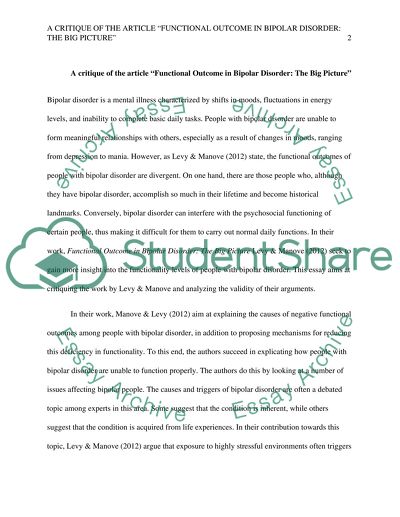Cite this document
(“Critique an article about patient with bipolar disorder Research Paper”, n.d.)
Retrieved from https://studentshare.org/nursing/1481788-critique-an-article-about-patient-with-bipolar
Retrieved from https://studentshare.org/nursing/1481788-critique-an-article-about-patient-with-bipolar
(Critique an Article about Patient With Bipolar Disorder Research Paper)
https://studentshare.org/nursing/1481788-critique-an-article-about-patient-with-bipolar.
https://studentshare.org/nursing/1481788-critique-an-article-about-patient-with-bipolar.
“Critique an Article about Patient With Bipolar Disorder Research Paper”, n.d. https://studentshare.org/nursing/1481788-critique-an-article-about-patient-with-bipolar.


